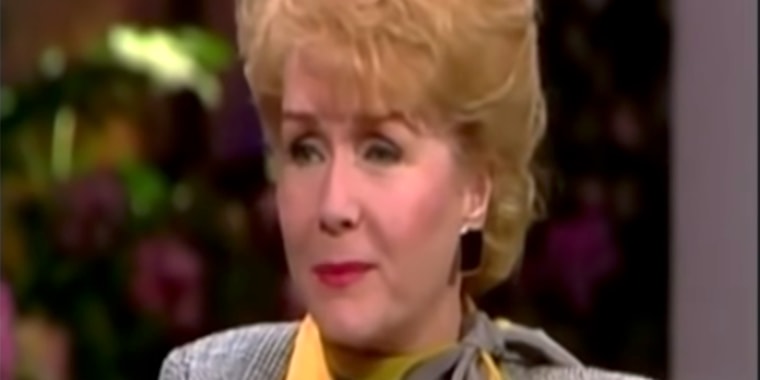Note: This post is about stillbirth.
An interview of the late actor Debbie Reynolds in which she says an abortion saved her life is resurfacing following the Supreme Court's overturning of Roe v. Wade. While people have shown support for the Supreme Court's decision, others have expressed disappointment and concern.
Recently, some of those who oppose the overturn have resurfaced a clip from a 1989 interview with the late television host Joan Rivers and Reynolds, in which the actress details her experience of being forced to carry a deceased fetus for nearly six weeks decades before.
At the time, she already had her son Todd and her daughter Carrie (who made a name for herself as Princess Leia in the “Star Wars” franchise) through her previous marriage, and she became pregnant while with her second husband, Harry Karl.
"I was pregnant seven months and the baby died inside of me," Reynolds said in the interview.
In the United States, a stillborn is defined as occurring at or after 20 weeks of pregnancy and is different from a miscarriage, which is established as occurring before the 20th week of pregnancy. According to the CDC, nearly 24,000 fetuses are stillborn in the United States, and nearly one in 160 births result in stillbirths.
Speaking to Rivers, Reynolds shared that one sign that her pregnancy had become stillborn was that her stomach appeared to have “shrunk down.”
“It was a very hard thing to get over because, in those days, there were no abortions allowed, whether you were ill or whether you were raped or whether the child died,” she remarked. “Which is disgusting to think that there (are) those laws.”
Reynolds revealed that because her pregnancy had become stillborn before the 1973 passing of Roe v. Wade, her medical provider denied her an abortion which meant that she was forced to carry her pregnancy to full term.
“It didn’t matter," she said. "It had to abort itself. It could not be taken from me.”
While carrying out the pregnancy, friends and acquaintances who were unaware of the circumstances would ask about the future.
“How’s the baby? What name are you going to name the baby?” Reynolds recalled to Rivers of what friends would ask her.
“It’s just something that I never have forgotten and the pain of it,” she explained, adding that when she began to become ill from carrying the dead fetus, it was agreed that an abortion would be necessary in order to save her life.
“After so much time, all the poisons and everything would have killed me. So they finally agreed — some board, imagine — that they would try to take this child out, but at this point now, it was more dangerous than ever,” she explained.
Months later, after becoming pregnant and once again experiencing a similar outcome, Reynolds was almost forced to endure the same experience.
“This time, I said, ‘I don’t want to know from Congress. I don’t want to know from any of you. You are taking this baby now,’” she explained, adding that despite the fact that anti-abortion laws were still the law of the land in the U.S., she was provided with the life-saving procedure by doctors who saw what she endured during her previous experience.
In the wake of the Supreme Court’s overturn of Roe v. Wade, users across social media platforms have re-shared Reynold’s interview.
“I can’t begin to put into words my feelings about the recent barbaric decision to overturn Roe vs. Wade in the Dystopian States of America,” one Twitter wrote in a caption that shared the interview. “This is Debbie Reynolds speaking about her own experience in the ’60s… it’s hard to listen to, but this is what’s going to happen again.”
“What she is describing happened to me in 1986,” a Twitter user responded to the post. “I was pregnant, fetus died at 12 weeks. I was told that eventually, my body would expel the dead fetus. At 20 weeks, I finally went into labor. I was forced to go through the entire experience without pain medication.”
“People need to understand it’s not just unwanted pregnancies (which should be protected as well),” another TikTok user wrote in response to the interview. “It’s also horrible situations like this."

